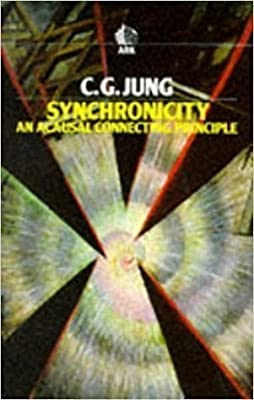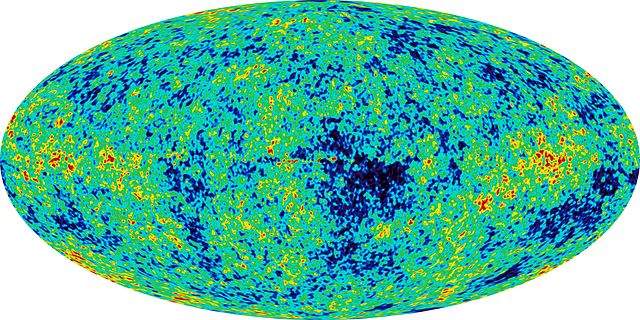I just posted a question in which I ask if spontaneously regrowing amputated limbs would constitute a proof of the supernatural, and several of the answers have presented interesting objections. This has led me to think of the problem with a more general perspective. Is there anything a supernatural entity could perform (say, super astonishing miracles violating multiple known physical laws) that would constitute irrefutable proof of its existence? Or will we always be able to posit valid objections no matter what the supernatural entity may do? In other words, does believing in the supernatural (even in the face of mind-blowing miracles) always require a degree of faith?
-
According to our modern understanding, there is a possibility that by essence, the divine nature is unprovable from our side, and not publicly communicable if imparted from above. The Catholic theory is that God will eventually change our minds, not just as to content but the form, so that we have a unique axiomatic consciousness of God, and consciousness of others' consciousness as such.– Kristian BerryCommented Sep 22, 2020 at 19:01
-
God does not need to resort to miracles or other tricks. He is omnipotent, he can make humans, or anyone else, have no doubt about his existence, or anything else, just by willing it.– ConifoldCommented Sep 22, 2020 at 19:25
-
Incarnate myself and stay on earth interacting with people. The real mystery is if s/he wanted people to believe, why doesn't s/he manifest in an undeniable fashion. Religion is largely the exercise in building a political consensus (by hook or crook) to this answer and speaking on God's behalf.– J DCommented Sep 22, 2020 at 19:35
-
2"Any sufficiently advanced technology is indistinguishable from magic." -- Arthur C. Clarke– user4894Commented Sep 22, 2020 at 20:59
-
1It also depends on what you mean by God. God in the biblical sense is very different than from God in dharmic religions. The later is said to be experienced, rather than needing faith in believing and it wouldn't be considered an entity.– O SCommented Sep 22, 2020 at 21:42
6 Answers
You're going to have to define "supernatural" to answer this question, and I think you'll run into the problem that "supernatural" is in practice defined by a lack of general acceptance. When you imagine a demonstration of a supernatural phenomenon, you're imagining something unconvincing, because if it were convincing it wouldn't be supernatural.
If God showed up, performed some miracles, and then disappeared again, I don't think it would satisfy scientific criteria of reproducibility no matter what he did. But if God showed up and stuck around, like Doctor Manhattan from Watchmen, then everyone would accept after a while that he existed and could do the things that he appeared to be able to do, just as they did in that story. His existence would become natural. He could never prove he was God if you're allowed to forever move the goalposts, but he could meet any reasonable, pre-agreed criteria of godhood, reproducibly, and I don't see how you can expect better than that.
A truly omnipotent supernatural entity can very easily prove its existence (and identity, e.g. as the god of the bible).
It could for example alter the minds of everyone (currently existing and coming into existence in the future) to accept exactly this altering of their mind as sufficient proof. This kind of proof is irrefutable by definition, because there's no one left to ever exist to refute it.
If the supernatural entity is unable do that, it is not omnipotent. If there are claims that it is omnipotent (e.g. in the bible) while it actually isn't there will always be people refuting any evidence based on those unfulfilled claims.
An omnipotent supernatural entity could also be able but not willing to just alter each and every mind. In this case the entity is limiting itself to not convince everyone. There's nothing as convincing as "convincing everyone", so if an omnipotent entity is not willing to "convince everyone", it won't.
TL;DR:
Yes, an omnipotent supernatural entity can do everything by definition including convince everyone.
No, if a supernatural entity can't convince everyone, it is either self-limiting or not omnipotent. By definition, it can't convince everyone.
-
I guess OP was in search for some spectacular miracle. However anything could be reasoned away as a dream (for current people) or myth (for future people), if it doesn't have a lasting effect. The most lasting effect to convince everyone is just do that: Convince everyone, forever. Nothing fancy needed.– NoAnswerCommented Sep 23, 2020 at 13:42
-
What about an omnipotent supernatural entity which allows free choice? God in Christianity is described as such.– vszCommented Sep 23, 2020 at 17:21
-
Why create a definition of God that is impossible? Your definition is the most common, but it's also the reason most scientists deny God and why most religious people deny science. God is simply all consciousness, and consciousness is simply the zero point energy field and how it interacts with the universe. Metaphorically speaking, the devil is real too. The devil however, is not evil, as it is only the opposite of consciousness and the opposite of good. That is goodless, or ungood, and it is simply the opposite of all consciousness, which is all matter in the universe.– Dan BrayCommented Nov 21, 2020 at 3:58
Let us try out the idea that there is supposed to be at least one possible world where decisive evidence of God exists. Now, is this evidence that God exists in that specific world? God does not with any world make up a whole.
Now, there would have to be decisive evidence in at least one world, that God exists in all worlds, or else such evidence that God exists but not in any one world. But how does such evidence end up in any world? God does not break into pieces, one of which could be identifiably deposited in some world. Much less could the fullness of God dwell in bodily form (notwithstanding what the Bible says; at best a divine person can incarnate, but not the divine nature in itself). So how do we move from evidence in a world, to conclusions outside of all worlds, when our only access to transworld logical space is in abstraction?
For God is not a general category, neither an instance of a different category; so whatever logic might say about necessary transpace existence, being abstract, might prove God to be possible, but it is also possible that we can't even decide whether God is possible.
I personally am suspicious even of the Catholic/hesychastic wish, because how could I in the flow of time, recognize that I saw through a glass darkly before, but now I see God face to face? How can the "qualia" of eternity change in experience? It would be more intelligible to say that there is beatific vision always, and what changes is our honesty with ourselves about it. But then you would want to prove that this vision exists. You need no extra proof of it for yourself; but for other people... And then either they always know or not, too, the moment of honesty is not yours and if they honestly don't know, that doesn't mean there's something else wrong with them.
Carl Jung wrote about Synchronicity - "an acausal connecting principle". Such a phenomenon would only manifest from a high dimensional perspective. However, its manifestation would be personal, especially if it happened frequently around you. Then it's up to you to decide if it's real. A statistician could say synchronistic phenomena were very improbable, and probably anecdotal. Ultimately it is a challenge to your openness of mind and rational faculties to decide whether is it real. It's not going to be decided by a team applying scientific measurements.
Incidentally, Sigmund Freud was open to possibility of telepathy, but that would be an interpersonal phenomenon, not as profound as synchronicity.
"No doubt you would like me to hold fast to a moderate theism and show myself relentless in my rejection of everything occult. But I am incapable of currying favour and I must urge you to have kindlier thoughts on the objective possibility of thought-transference and at the same time of telepathy as well." (Freud 1933, New Introductory Lectures, p. 85)
In its original form, this question referred specifically to God.
Either everything is a proof of God, or nothing is.
If you view God as a Necessary Being, then the existence of anything is an irrefutable proof of God's existence. If you are capable of disbelief in God, then all demonstrations will strike you as capable of being faked.
With regards to a supernatural entity, that might or might not be God, the situation is a bit different. Even so, I would expect someone with an extreme commitment to naturalism to respond that anything that might possibly seem to be supernatural could just be the result of some super-advanced technology indistinguishable --to us --from the supernatural.
-
1Poppycock. There are a number of demonstrations that can't be faked, and that even the most die-hard skeptic--if he is rational and honest--would be hard-pressed to refute. There will be those who still refuse to accept that evidence for irrational and dishonest reasons, but that doesn't change the reality. Bring me a counterexample to the Reimann hypothesis; write down 1000 specific predictions of quantum random events, letting me hold the predictions and the devices and record the events; let me choose a celestial object, then make it change course without any detectable force applied... Commented Sep 23, 2020 at 19:25
-
1@LeeDanielCrocker I failed to see that the question had been changed from God in particular to a supernatural entity in general, which is a considerable change. Nevertheless, could you prove that those were the actions of a "supernatural" entity, and not just a very advanced technology of which we are entirely ignorant? Commented Sep 23, 2020 at 19:41
-
Good question. The quantum-randomness thing rules out a more advanced civilization in our universe, but it still doesn't rule out, say, the sysop of the simulation that is our universe. But I'd call that "supernatural"--he's outside of our nature. Commented Sep 24, 2020 at 18:01
An actual proof would require the supernatural being in question be very precisely defined. It would be difficult to define any physical being that precisely. But if we lower the standards from "proof" to "evidence so overwhelming that no reasonable person could dispute the conclusion", it becomes much easier.
For a god, especially a nigh-omnipotent, universe-creating god, the trick is to think big.
The WMAP mission measured the temperature of the cosmic microwave background radiation across the entire sky. This temperature was, in turn, directly determined by the location and density of all the matter in the universe during its very early stages (approximately 370,000 years after the big bang).
Now suppose that the WMAP data contained an artist's signature.
Any being that signed the early universe would have changed the nature of huge parts of the modern universe as a necessary side-effect of putting the signature in place. And if they signed it later, they would have needed to modify a volume of space billions of light-years in diameter. Either way, that being is more powerful than anything humanity could ever hope to even approach. It would definitely be worthy of the label "god". (We haven't actually proven that it created the universe, but if it claims to have done so, I'm not going to argue.)


